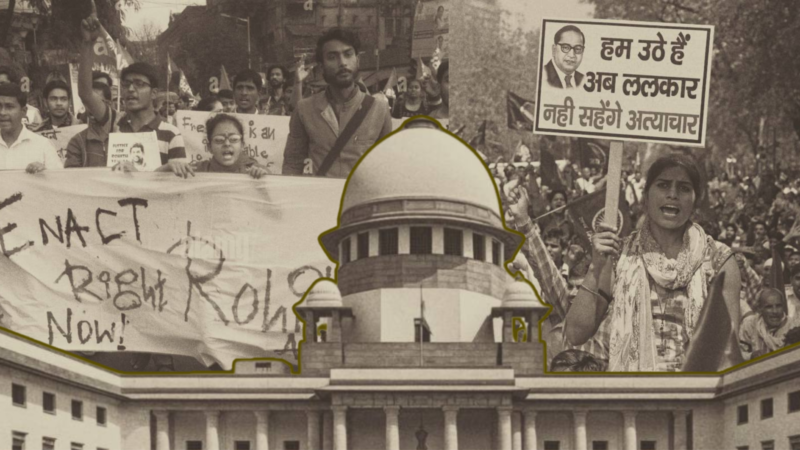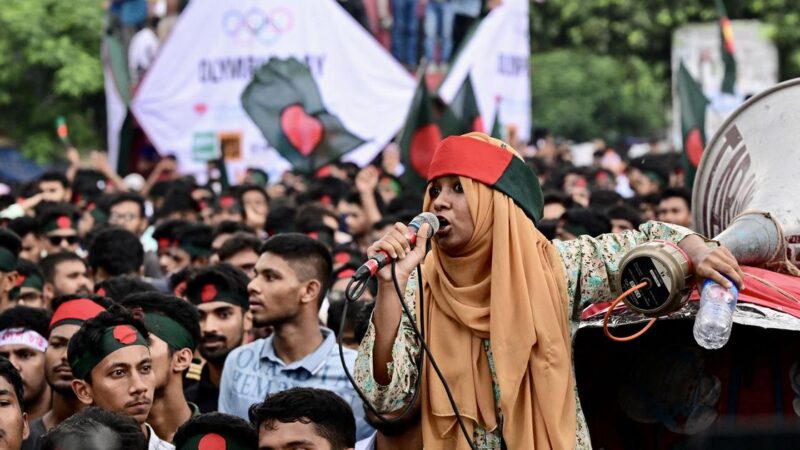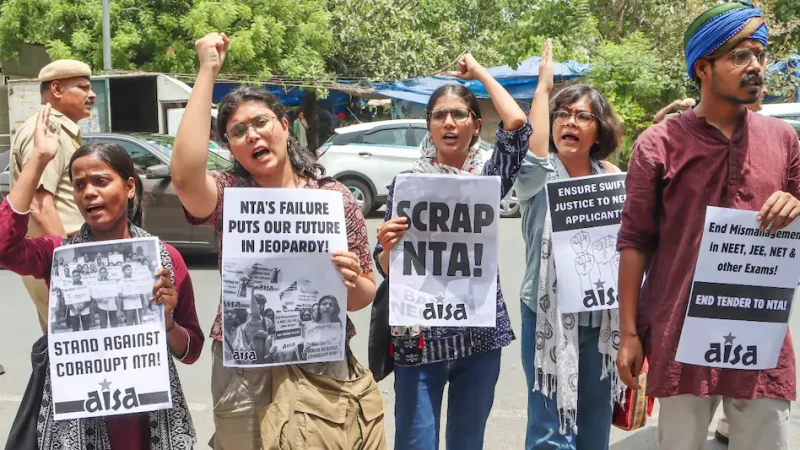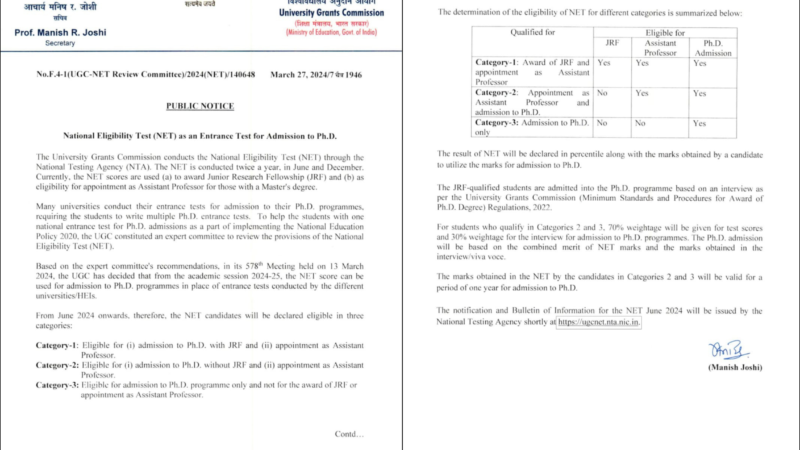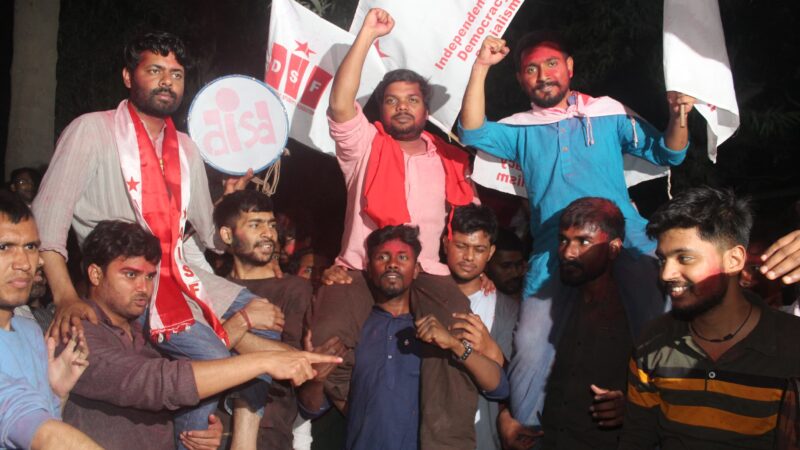Consolidating the Path for Commercialisation of Education!
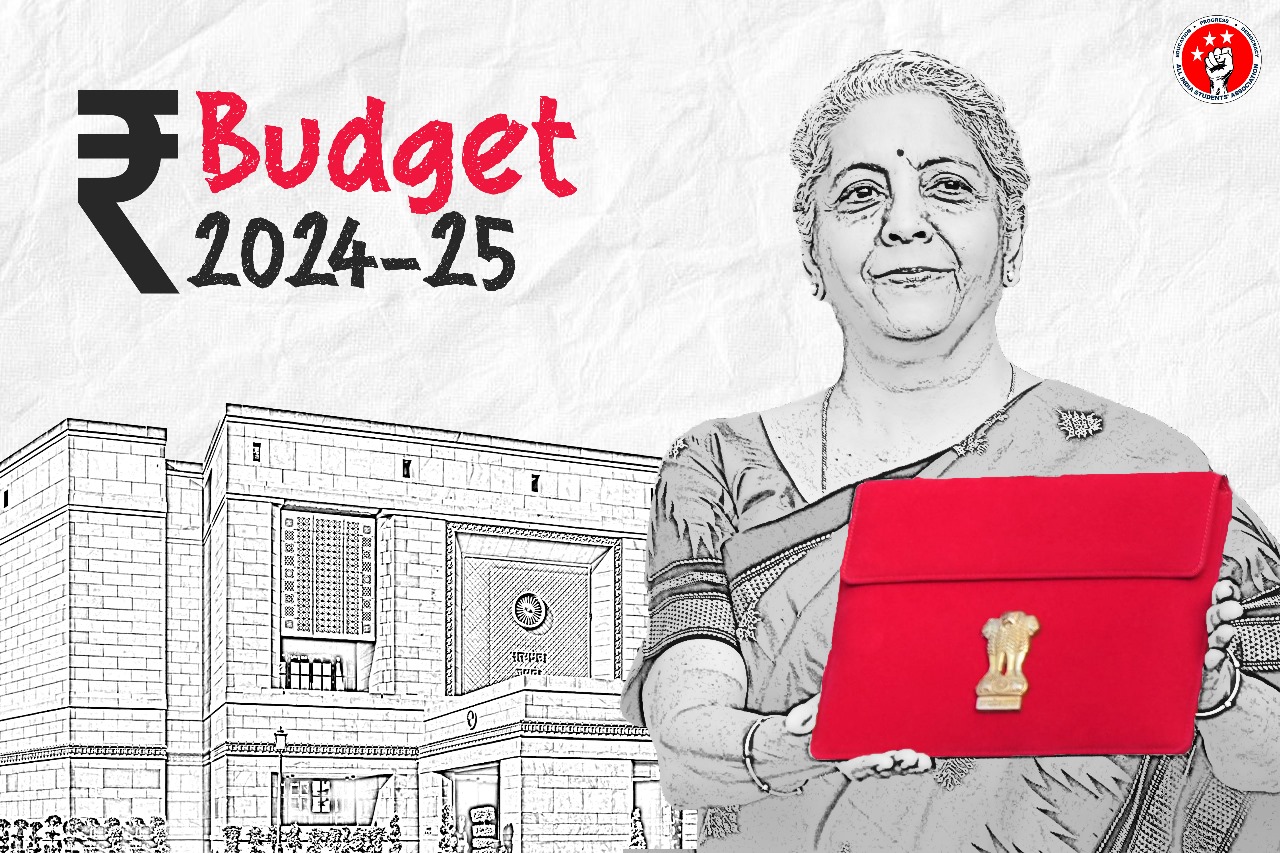
AISA Statement on Union Budget 2024
New Jumla, instead of solution, to solve the crisis of unemployment!
In line with previous trends of appeasing the corporate sector and global rating agencies, the Modi government has once again adopted a conservative and pro-corporate stance in its latest Union Budget. Despite claims by Union Finance Minister Nirmala Sitharaman that the budget aims to shift focus from fiscal deficit to the debt-to-GDP ratio, its essence lies in facilitating a “free market” environment. This will allow corporate sector to gain unhindered access to public funds and available resources as the government aims to decrease both its expenditure and borrowing even in future course of actions.
Contrary to the pressing need for government intervention & expenditure in education, employment, social security, and welfare, the BJP government’s policies are guided by an ideological belief that such sectors are best left to market forces. Modi government’s conservative approach finds its roots in the Fiscal Responsibility and Budget Management Act of 2003, passed during Atal Bihari Vajpayee’s regime. The act targets a 3% fiscal deficit, effectively steering focus away from public welfare initiatives that could address poverty, hunger, inadequate education, and unemployment.
The 2024 education budget highlights this approach by championing a “loan-based education model” as outlined in the New Education Policy 2020. This year’s budget allocation for the Education Ministry has been reduced by ₹9,090 crore, amounting to ₹1,20,627 crore from the revised estimate of ₹1,29,717 crore in 2023-24. This budget accounts for merely 2.5% of the total Union budget, far below the Kothari Commission’s recommendation of 6%. The allocation for higher education also saw a reduction, dropping by ₹9,625 crore to ₹47,619.77 crore from ₹57,244.48 crore in the previous year.
The Modi government’s persistent push for the New Education Policy 2020 includes dismantling the University Grants Commission (UGC) in favor of the Higher Education Financing Agency (HEFA). The UGC’s budget has been slashed by 61%, down to ₹2,500 crore from ₹6,409 crore in the last fiscal year. This cutback forces universities to seek loans from HEFA, promoting self-financed courses and making education accessible only to those who can afford it.
The budget has also reduced funding for premier institutions like IITs and IIMs. IITs have seen a budget cut of ₹60 crore, while IIMs have faced two consecutive years of reductions, from ₹608.23 crore in 2022-23 to ₹212.21 crore in 2024-25.
Instead of prioritizing the establishment of new universities and lowering fees, the government is pushing for the commercialization of education by providing a 3% subsidy on education loans up to ₹10 lakh for just 1 lakh students. Current interest rates on education loans range from 9% to 12%, making higher education a costly affair.
To address the issue of youth unemployment, the government has also introduced a new internship scheme where the top 500 companies would hire 1 crore people yearly at 5000 per month stipend, but as many economists have noted the maths for the scheme is all wrong. Each company would be required to hire 20,000 interns yearly, these companies are capital intensive firms who don’t have that much labour requirement, and this scheme may also lead to more casual hiring of employees.
The focus on skill development is nothing new with Modi government. Earlier it had brought a “new” scheme named Pradhan Mantri Kaushal Vikas Yojna with a corpus of 6000 crore rupees to train initially 2.4 million youths in various vocational skills. But that scheme was a gross failure. It was basically a scheme that clubbed together different previous schemes and gave it a new name and the body SSC that was given the task of imparting skills was also the same body that provided certification without any oversight. The crucial infrastructure of coordination was not developed and neither was there any structure in place to oversee whether the different stakeholders were carrying out their tasks. For this flagship PMKVY, the official website data claims that 54% of the trainees are placed through this scheme. Actual data analysis shows that of the total 12,454,858 candidates assessed, 11,041,125 candidates were certified, and only 2,451,517 candidates were placed, i.e. only 22.2% were placed.
Amid rising income inequality, many economists have suggested implementing a 2% wealth tax and a 30-40% inheritance tax on the top 1% super-rich. Such measures could fund universal public education and employment rights. Instead, the Modi government has reduced the corporate tax rate for foreign companies by 5%, from 40% to 35%. The government seems to prioritize corporations as the “wealth creators” over the working class, who face poverty, hunger, and unemployment despite working day & night to build the country and adding value to society.
One of the most important issues that our nation is dealing with today is unemployment, which was ignored in the budget. A mere promise to contribute more to EPF for additional employment by employers, and giving first salary to newly employed people, that too just in organised sector would make no difference in the scale of unemployment grappling India. The unemployment rate stood at 9.2 % in June ’24, highest in the last 10 years, female unemployment reached 18.5 % exceeding the national average. While India’s working population is increasing, there are less and less jobs owing to the disastrous policies of demonetisation and implementation of GST. The government is continuously ignoring the issue of unemployment as is evident from the budget.
Overall, the Modi government’s 2024 Union Budget reflects an old story in a new package. The BJP government appears unwilling to learn from past mistakes, perpetuating the struggles of the country’s youth. Without significant investment in education and employment opportunities, meaningful change is unlikely. Relying solely on skilling initiatives and appeasing the corporate world may only exacerbate frustrations, potentially leading to unrest, as seen in recent student movements in Bangladesh.
AISA
